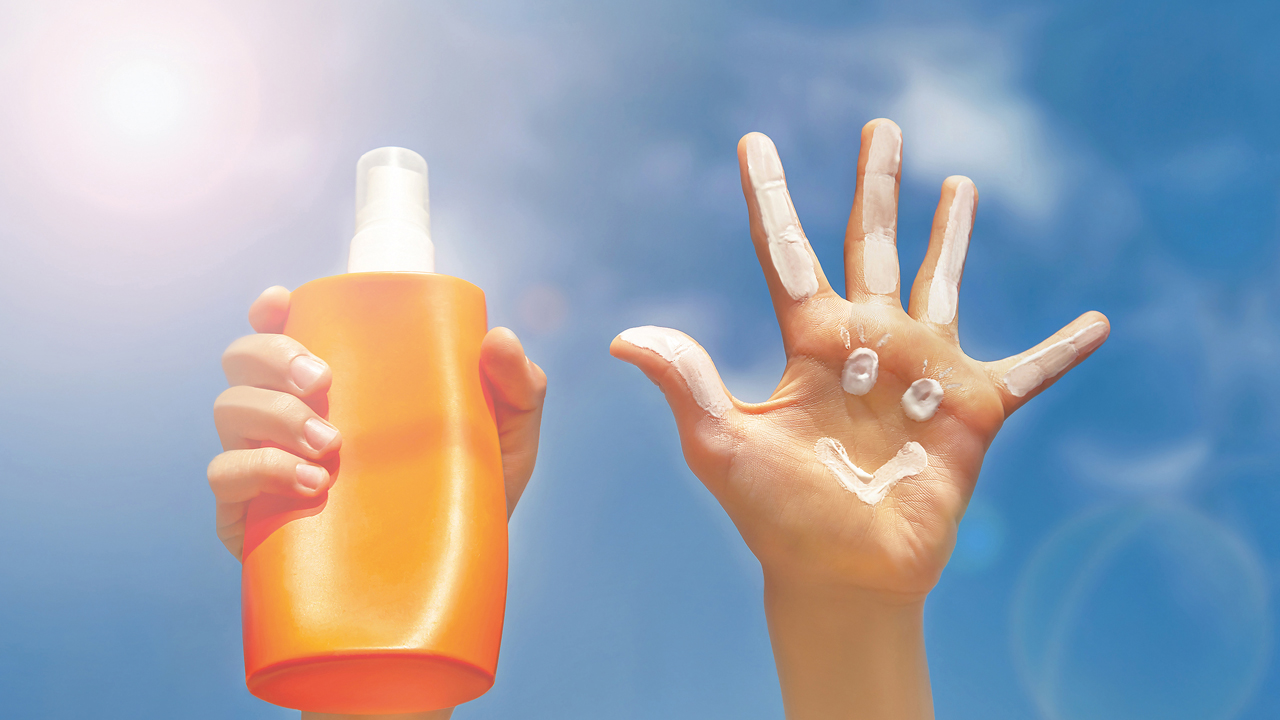In Campaigns
Follow this topic
Bookmark
Record learning outcomes
Things are heating up in the UK, yet due to historical perceptions of the great British weather, many Brits are facing serious, life risking sun burn each year by forgoing sun safety.
In fact, more than one in three (35 per cent) of people were getting sunburnt every year in the UK, with a further 46 per cent burning while abroad, according to a survey conducted by the British Association of Dermatologists (BAD) in 2017.
Not only is sunburn an eye sore and painful, but it can also lead to serious health risks, mainly skin cancer, the most common cancer in the UK, adds the organisation. Indeed, getting sunburnt just once every two years can triple the risk of melanoma skin cancer, compared to never being burnt, adds Cancer Research UK.
And it’s not just the skin that suffers. The eyes are 10 times more sensitive to ultraviolet (UV) rays than the skin, according to the Eyecare Trust. In the UK, eye exposure to UV is one of the main causes of age-related macular degeneration and cataracts, the leading cause of sight loss and affecting a staggering one in three people aged over 65 years, explains Cancer Research UK.
Conversation starters
To help raise awareness about the importance of sun safety, pharmacy teams can look to Sun Awareness Week, run by BAD from 1-7 May.
“Preparation is important if you want to protect your skin from the sun, so this year we are planning to raise the public’s awareness of the UV forecast and encourage people to check it regularly. We will also be highlighting sun behaviour habits in the UK and sun protection dos and don’ts,” Matthew Gass of BAD tells Training Matters.
Pharmacy teams can get involved with highlighting two main elements of Sun Awareness Week: skin cancer prevention and early detection. “Prevention is always better than a cure, so this is a good place to start,” adds Matthew. “With this in mind, it’s good to raise awareness of the dangers of excessive sunbathing, tanning and sunburn. As well as sun protection messages, it is important to highlight the potential dangers of sunbeds.
“When it comes to the early detection of skin cancer, it is vital that people understand the different types of skin cancer, how to spot them, and what they should do if they think they are concerned about a potential skin cancer.”
Pharmacy teams can access downloadable leaflets and posters for free from the BAD website: skinhealthinfo.org.uk/sun-awareness.
Protection is key
Alongside raising awareness, there are some simple tips pharmacy teams can pass onto customers:
- Sun cream: customers should be advised to use a sun cream with a sun protection factor (SPF) of at least 30 to protect against UVB and at least four-star UVA protection. It’s also important to check the expiry date of sun cream
- Protect the eyes: use good quality UV protective sunglasses, especially wraparound glasses, that block out 99-100 per cent of both UV-A and UV-B radiation
- Shade: Stay out of the sun during peak times of the day and cover up with suitable clothing, a hat and sunglasses
- Check the UV index.
You, me and UV
Though in small quantities ultraviolet (UV) rays are an extremely beneficial source of vitamin D – vital for keeping bones healthy – they can have a serious and long-term impact on the skin and eyes.
The UV index indicates how strong UV rays are, when above 3 or more, the sun is strong enough to cause damage. Below is the UV index further explained via Cancer Research UK:
- UV 1-2 Low exposure: No sun protection needed
- UV 3-5 Moderate exposure: Think about sun protection, especially between 11am-3pm
- UV 6-7 High exposure: Skin protection needed for most skin tones
- UV 8-9+ Very high exposure: Skin protection needed for all skin tones.
Pharmacy teams can remind customers to be UV aware and there are many simple ways to stay in the know. A UV forecast for the UK and world are available on the Met Office App, with forecasting for the next week available each day. Remember! It doesn’t have to be hot for UV levels to be high.
Resources
- Read up on Sun Awareness Week via the British Association of Dermatologists (BAD)
- Get familiar with signs of skin cancer with the British Skin Foundation and Cancer Research UK
- For the UV Index visit the Met Office.

